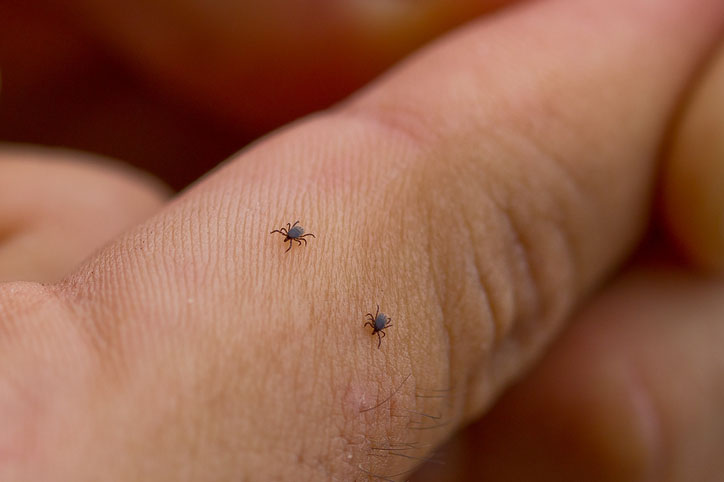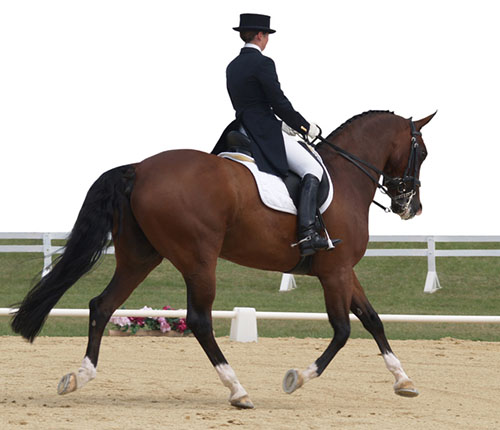Pharyngeal Lymphoid Hyperplasia in Horses
(Pharyngitis)
- Respiratory Diseases of Horses
- Overview of Respiratory Diseases of Horses
- Equine Herpesvirus Infection
- Equine Influenza
- Equine Viral Arteritis
- Hendra Virus Infection in Horses
- Pleuropneumonia in Horses
- Rhodococcus equi Pneumonia in Foals
- Acute Bronchointerstitial Pneumonia in Foals
- Strangles in Horses
- Recurrent Airway Obstruction in Horses
- Inflammatory Airway Disease in Horses
- Exercise-induced Pulmonary Hemorrhage in Horses
- Laryngeal Hemiplegia in Horses
- Pharyngeal Lymphoid Hyperplasia in Horses
- Dorsal Displacement of the Soft Palate in Horses
- Epiglottic Entrapment in Horses
- Subepiglottic Cyst in Horses
- Fourth Branchial Arch Defect in Horses
- Diseases of the Nasal Passages in Horses
- Diseases of the Paranasal Sinuses in Horses
- Guttural Pouch Disease in Horses
Pharyngeal lymphoid hyperplasia is a common condition of the dorsal pharyngeal wall seen in young horses (1–3 yr old). Horses do not have discrete masses of lymphoid tonsillar tissue; rather, they have many small foci or follicles of lymphoid tissue spread diffusely over the roof and lateral walls of the pharynx. In mature horses, these follicles blend with mucosal tissue and are unnoticeable. In young, maturing horses, lymphoid follicles appear as prominent, raised nodules on the surface of the pharyngeal roof and extend down the lateral walls of the pharynx and cranially into the nasopharynx. Although PLH was once believed to be an important cause of poor performance in racehorses, its clinical significance is now questionable. Virtually all young horses develop hyperplasia of pharyngeal lymphoid follicles; in most cases, this represents a normal immunologic event.
Occasionally, follicles may enlarge and coalesce with surrounding follicles. In these situations, follicles may appear hyperemic or inflamed and may exude mucoid or mucopurulent material. These cases likely represent a mild or subclinical viral infection and may be associated with impaired performance. Signs of pharyngeal pain include reduced appetite and frequent swallowing. Treatment is not necessary in the vast majority of cases; however, rest and NSAID administration are warranted in horses demonstrating pharyngeal pain.
- Respiratory Diseases of Horses
- Overview of Respiratory Diseases of Horses
- Equine Herpesvirus Infection
- Equine Influenza
- Equine Viral Arteritis
- Hendra Virus Infection in Horses
- Pleuropneumonia in Horses
- Rhodococcus equi Pneumonia in Foals
- Acute Bronchointerstitial Pneumonia in Foals
- Strangles in Horses
- Recurrent Airway Obstruction in Horses
- Inflammatory Airway Disease in Horses
- Exercise-induced Pulmonary Hemorrhage in Horses
- Laryngeal Hemiplegia in Horses
- Pharyngeal Lymphoid Hyperplasia in Horses
- Dorsal Displacement of the Soft Palate in Horses
- Epiglottic Entrapment in Horses
- Subepiglottic Cyst in Horses
- Fourth Branchial Arch Defect in Horses
- Diseases of the Nasal Passages in Horses
- Diseases of the Paranasal Sinuses in Horses
- Guttural Pouch Disease in Horses





